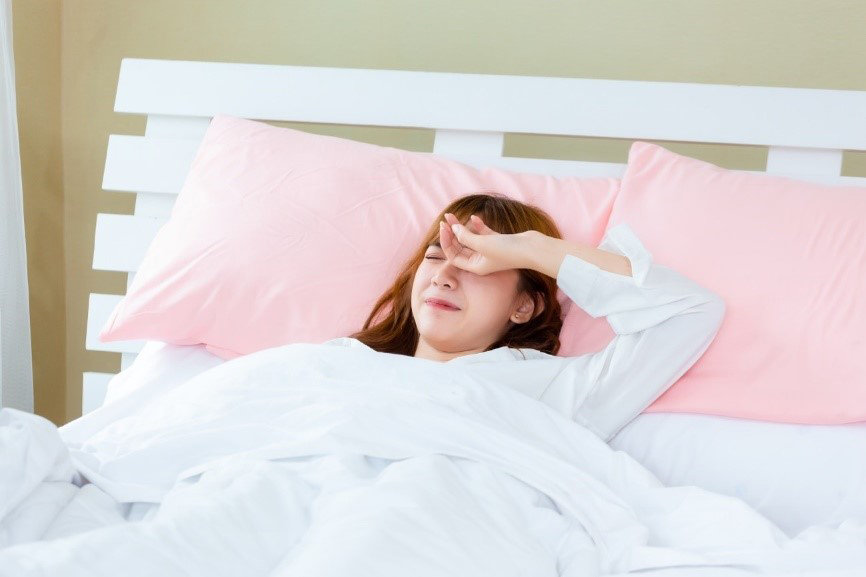Moderate and Intense Physical Activity Favors Good Sleep
New study conducted in Japan emphasizes the importance of physical activity in improving sleep quality in middle-aged Japanese women
Proper sleep is critical for the maintenance of good health, and vice versa--a healthy lifestyle has been found to improve sleep quality. To better examine the relationship between physical activity and sleep, a team of researchers conducted a comprehensive study among middle-aged Japanese people. By outlining the factors improving sleep quality, this line of research can hopefully help in preventing sleep-related disorders.
An adequate amount of good-quality sleep is essential for the physical and emotional well-being of humans. For instance, good-quality sleep helps improve the outcomes of various diseases, including cardiovascular and metabolic disorders, mental diseases, and dementia. On the other hand, sleep disorders such as insomnia, narcolepsy, and excessive sleepiness may lead to serious health issues and are quite prevalent the world over. In the USA, 50-70 million adults suffer from sleep disorders, primarily insomnia. Meanwhile, a meta-analysis of 17 studies suggested that in China, insomnia is present in 15% of the population. To better understand such ailments, it is important to study the factors that promote good-quality sleep. Previous studies have indicated that a proper lifestyle, including a healthy diet and regular physical activity, is beneficial for good sleep. However, a systematic comprehensive study is lacking in this area of research.
To this end, a team of researchers from Japan, Canada, and Taiwan--led by Associate Professor Javad Koohsari from the School of Knowledge Science at Japan Advanced Institute of Science and Technology (JAIST), who is also an adjunct researcher at the Faculty of Sport Sciences at Waseda University,--has probed the inter-relationship between sedentary behaviour, physical activity, and sleep quality in a sample of middle-aged Japanese population. The research group, comprising Professor Yukari Nagai, also from JAIST; Professor Akitomo Yasunaga from Bunka Gakuen University; Associate Professor Ai Shibata from University of Tsukuba; Professor Yung Liao from National Taiwan Normal University; Associate Professor Gavin R. McCormack from University of Calgary, and Professor Koichiro Oka and Professor Kaori Ishii from Waseda University, based their study on Japanese adults between 40 and 64 years of age--a crucial time window which often marks the onset of various health issues. Their work has been recently published in Scientific Reports.
The researchers used an isotemporal substitution approach, which estimates the effect of replacing one activity type with another for the same amount of time. Says Dr. Koohsari, "We replaced 60 minutes of sedentary behaviour or light-intensity physical activity with moderate-to-vigorous physical activity in the participants' schedules." An accelerometer monitored the participants' level of physical activity for seven consecutive days. A questionnaire was then used to assess the participants' quality of sleep and rest.
The replacement of sedentary behaviour with moderate-to-intense exercise indeed improved sleep quality. Interestingly, this association was seen to be gender-based, and was only found in women. This is in agreement with reports that have shed light on gender-based differences in sleep disorders. More studies are, however, required to understand why these gender-based dissimilarities occur.
In summary, this study contributes to the existing pool of studies that provide empirical evidence of the importance of physical activity in promoting good-quality sleep. Hopefully, these studies will serve as a useful platform for further research on the prevention of sleep-related disorders. Surely, we now have enough motivation for regularizing our workout schedules!
Image:

Image title: Picture 1. Research highlights the role of physical exercise in improving sleep quality in middle-aged Japanese women
Image caption: Sleep disorders such as insomnia, narcolepsy, and excessive sleepiness, which have numerous adverse health effects, are prevalent in general populations worldwide.
Image credit and link: source Free picture from Blondinrikard Froberg on flickr
License type: source Free picture

Image title: Picture 2. Research highlights the role of physical exercise in improving sleep quality in middle-aged Japanese women
Image caption: A gender difference in sleep quality has been reported in several studies.
Image credit and link: source Free picture from jcomp on Freepik
License type: source Free picture
Reference
| Title of original paper: | Sedentary behaviour and sleep quality |
| Authors: | Mohammad Javad Koohsari*, Akitomo Yasunaga, Gavin R. McCormack, Ai Shibata, Kaori Ishii, Yung Liao, Yukari Nagai, Koichiro Oka |
| Journal: | Scientific Reports |
| DOI: | 10.1038/s41598-023-27882-z |
Funding information
Dr. Gavin R. McCormack is supported by a Canadian Institutes of Health Research Foundations Scheme Grant (FDN-154331).
Prof. Koichiro Oka is supported by a Grant-in-Aid for Scientific Research (No. 20H04113) from the Japan Society for the Promotion of Science.
January 31, 2023
